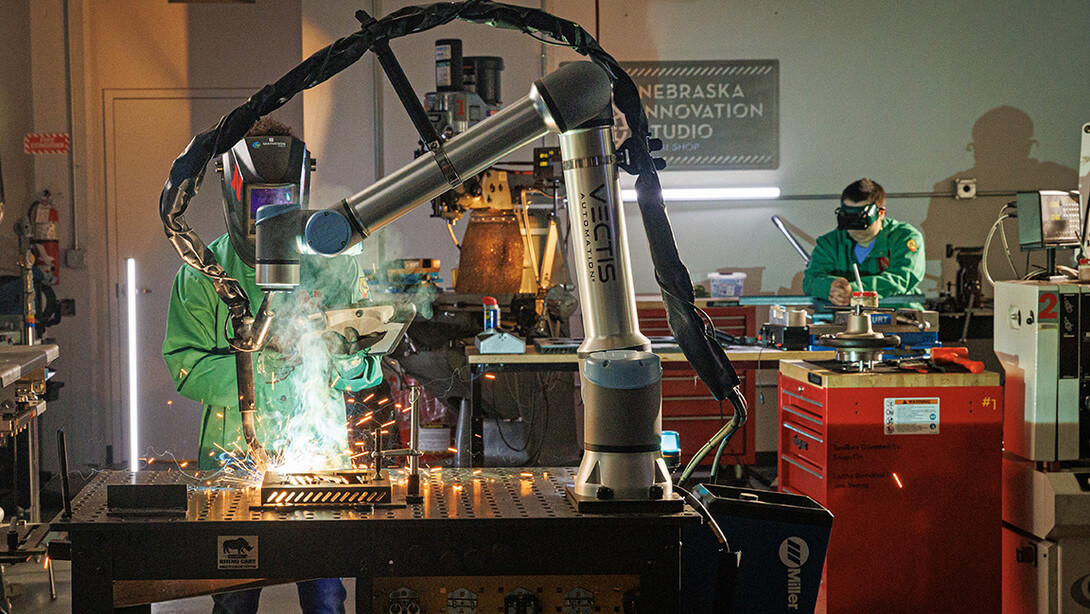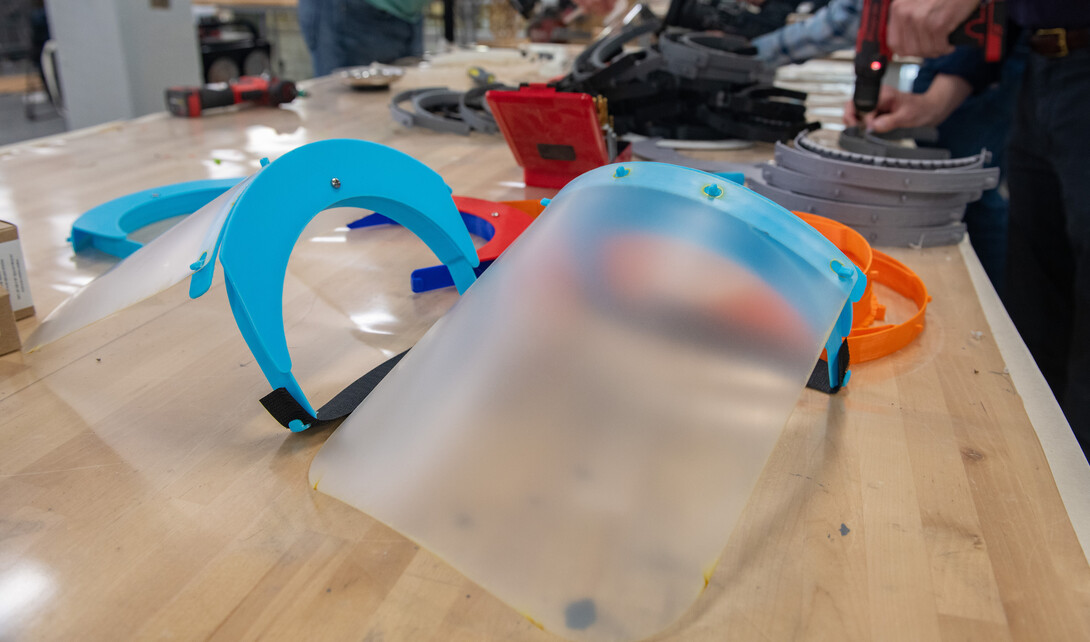
For 10 years now, Nebraska Innovation Studio has been the place to tinker, create and innovate.
And on its 10th anniversary, the makerspace will expand its entrepreneurial footprint with the launch of the Frontier Tech Lab, a service center that will connect people and companies with a new idea to makers and students who can help take it to the next step.
“We’re looking to attract more businesses and startups who have a need for parts or prototypes — filling that gap between a great idea and a real-world solution,” said David Martin, director of the studio.
An open house to celebrate the anniversary and the launch of Frontier Tech Lab will be 3 to 6 p.m. Oct. 6 at the makerspace, with remarks at 4 p.m. from makers, leaders and partners who have helped shape Nebraska Innovation Studio over the past decade. Refreshments will be served. Registration is requested.
Nebraska Innovation Studio started as the UNL Makerspace, an idea proposed by Shane Farritor, Lederer Professor of Engineering, and championed by former Chancellor Harvey Perlman. It took up a large space in the Innovation Commons building of the fledgling Nebraska Innovation Campus when it officially opened on Oct. 8, 2015.
“When this place opened, it was both a makerspace and the promise of what a makerspace could be — definitely not done,” Martin said.
The 16,000-square-foot space was sparsely equipped, with a laser, vinyl cutter, screen printing, wood shop, and ceramic and textile areas. The makerspace has had significant growth since then in facility offerings and membership numbers.
“One benefit of not being fully built out when we opened is that we were able to see what people really wanted and needed,” Martin said. “I think if we’d started with a full space, there would be a lot of unused equipment. Since we built piece by piece, we've been able to listen to what people need and want and get our equipment accordingly, and everything gets used.”
Today, Innovation Studio offers multiple shops in the space — Electronics, Rapid Prototyping and Robotics; Metal; Wood Shop; Ceramics; Graphics Studio; and Textiles. Martin said the wood shop has continued to be the most popular.
In 2017, the studio reached 200 active members, and in 2018 began a partnership with the Whole Health and Veterans in Recovery program to offer therapeutic programs, which have helped about 350 veterans. Veterans’ memberships are free through an anonymous donor.
A classroom was added in 2019, allowing university students to meet in the studio regularly and get hands-on learning and project development. Martin said the classroom stays booked, with an average of five classes offered per semester, in addition to community groups who use the space.
“The fun thing about many of the classes is that when they get here, most of them have not done much making at all, and they really thrive,” Martin said.

In 2020, Innovation Studio was closed to the public for six months due to the COVID-19 pandemic, but innovation was not slowed. Staff and volunteers made 33,000 face shields for hospitals and dental practices, and other personal protection equipment, including 1,500 protective gowns and hundreds of fabric face masks for first responders.
The makerspace added a metal shop and expanded its wood shop in 2021.
Private donors and foundations have made much of the growth of Innovation Studio possible. More than $3 million has been given privately to procure equipment, and the studio has been part of large grants to spur economic growth, including a $25 million grant in 2022 from the U.S. Economic Development Administration that established the Heartland Robotics Cluster. Innovation Studio received $4 million from the grant to purchase universal robots, a welding robot, drones and other automation equipment. The grant also allowed the studio to hire new staff to run robotics and drone programming, beginning in 2023. An NIS Innovation Fellowship program launched in 2024 to give entrepreneurs material and technical support and connect them with mentors.
Membership has grown, too. In April, the studio recorded a record 498 active members. Martin said there is more growth on the horizon, with the launch of the Frontier Tech Lab, a few more pieces of equipment — though space is becoming more limited — and continued partnerships with campus and the Nebraska community.








